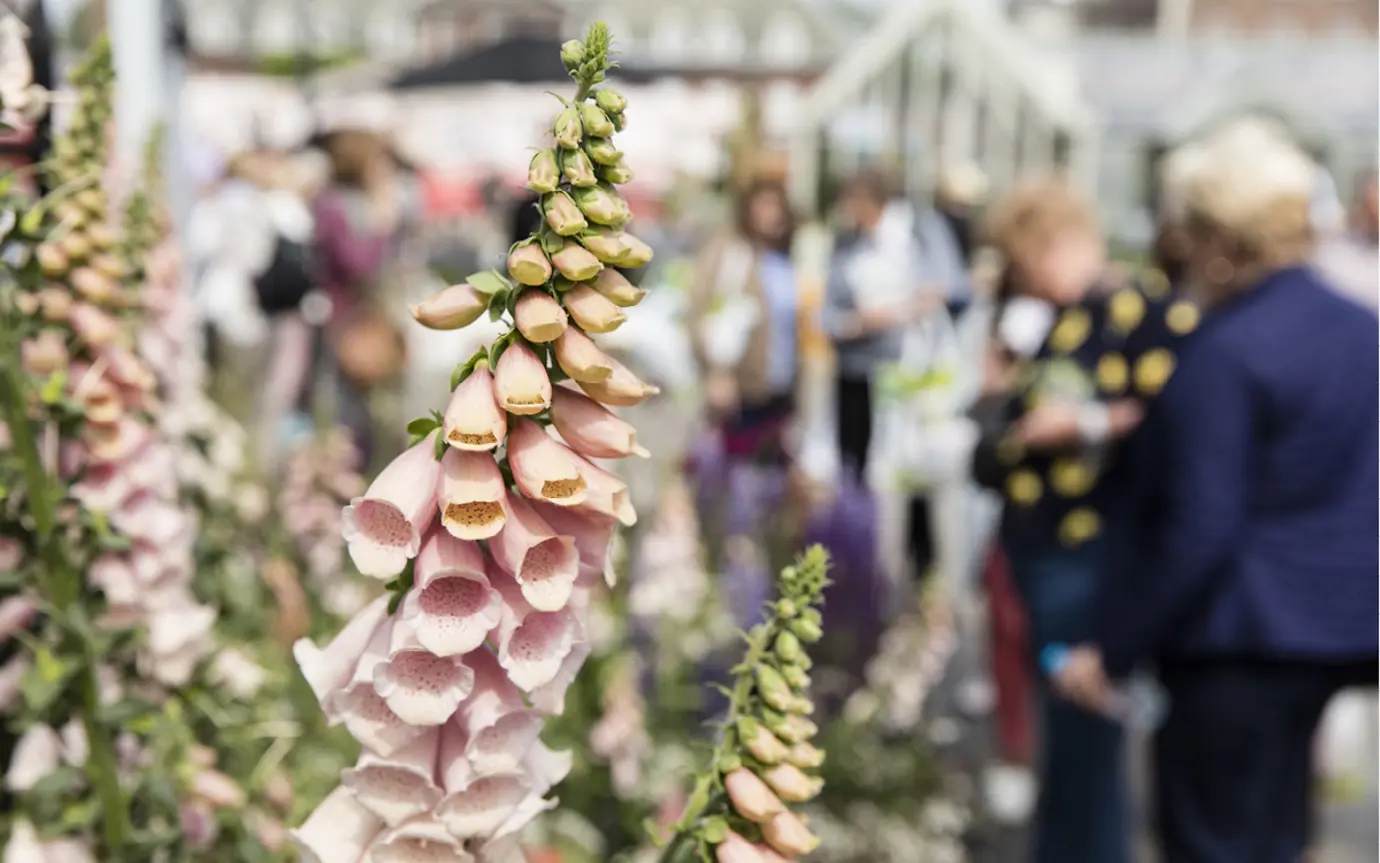All this week, the Chelsea Flower Show has delighted crowds and television audiences around the world. This year, the Show is not just about kickstarting the summer social season, it also has a critically important sustainability message.

Since the pandemic began, there has been a noticeable shift in awareness of the fragility of our planet. Nowhere is this more evident than in the natural world, represented each year by designers and horticulturists at the annual Chelsea Flower Show.
The first show at Chelsea was in May 1913, before the outbreak of World War I. Post-war, the Chelsea Flower Show was re-instated and, by the late 1920s, the Countess of Lovelace and Jacqueline Hope, two residents of Chelsea, began hosting garden tea parties for celebrities and guests to mark the Show.
Today, Chelsea is more than just a chance to catch up with friends and observe the latest horticultural trends. It is an opportunity for those most in touch with the natural world to display ecologically-aware designs that not only celebrate biodiversity and nature, but also warn us about its potential demise. Sustainability has been a core theme of the Flower Show for a number of years now. Last year, the Royal Horticultural Society awarded the first ever Chelsea Sustainable Garden Product of the Year Award to Ocean Plastic Pots, plant pots constructed from marine plastic waste. In previous years, sustainability has also been woven through many of the garden entrants: from Show Gardens inspired by COP26 to 2021’s Best in Show which had a focus on detoxifying air, water and soil.
Chelsea’s show gardens often celebrate natural materials, highlighting the importance of leaving nothing behind, in order for the natural world to regenerate and regrow. This theme of circularity will once again pervade many of the spaces across the Flower Show, demonstrating the importance of responsible consumption patterns of reuse and recycle, mirroring what happens so naturally in nature.
This year’s official theme, of ‘wild’ and ‘natural’ spaces, is Chelsea’s nod to biodiversity. Biodiversity is the variety of species living on Earth including plants, animals, humans and ecosystems; it underpins food security and nutrition, stabilises weather patterns and prevents diseases. The current rate of biodiversity loss is unprecedented, with over one million species at risk of extinction[1]. Sadly, here in the UK, we have experienced some of the most extreme biodiversity loss over the past 50 years, putting us in the bottom 10% of countries globally, and worst in the G7[2].
Visitors to this year’s Chelsea Flower Show will experience a biodiverse range of species working in harmony amongst hedgerows, wildflowers and woodland. In what is perhaps a deviation from the usual precision that we have come to expect with show gardens, this year’s Chelsea is likely to reframe the purpose of a garden with what is expected to be the ‘most naturalistic feel in years.’
Interestingly, this year, a number of gardens are not just reflecting the challenges of our physical planet, but also wellbeing challenges for people. Several of them for example have social consciousness at their core, such as the Mind Garden, St Mungo’s Putting Down Roots Garden and a garden built on a 1900s brownfield site. One of the most anticipated gardens highlights the importance of children’s mental health, through a partnership with Place2Be. This garden is designed to be a calm, safe and welcoming space for children, representing the extraordinarily important work undertaken by Place2Be.
For many, the Chelsea Flower Show kicks off the summer social calendar. Increasingly, however, garden designers and associated sponsors are using this incredible, unique platform as a force for good and one to promote long-term change. Using the power of plants to do this evokes a deep sense of the circularity of life as well as the impermanence of species, which are entirely dependent on us as humans for their future survival.
[1] IPBES Global Assessment Report on Biodiversity and Ecosystem Services
[2] Biodiversity Intactness Index, Natural History Museum
Read more from The Brief.
This communication is provided for information purposes only. The information presented herein provides a general update on market conditions and is not intended and should not be construed as an offer, invitation, solicitation or recommendation to buy or sell any specific investment or participate in any investment (or other) strategy. The subject of the communication is not a regulated investment. Past performance is not an indication of future performance and the value of investments and the income derived from them may fluctuate and you may not receive back the amount you originally invest. Although this document has been prepared on the basis of information we believe to be reliable, LGT Wealth Management UK LLP gives no representation or warranty in relation to the accuracy or completeness of the information presented herein. The information presented herein does not provide sufficient information on which to make an informed investment decision. No liability is accepted whatsoever by LGT Wealth Management UK LLP, employees and associated companies for any direct or consequential loss arising from this document.
LGT Wealth Management UK LLP is authorised and regulated by the Financial Conduct Authority in the United Kingdom.